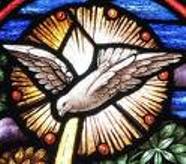In an article from Catholic Answers, that you can read here, Fr. Paul Scalia states:
“In various areas the Church grants certain options and leaves the choice to our prudential judgment. We may find certain practices preferable. Yet we cannot insist on them, because the Church does not. On the other hand, we may dislike certain practices. Yet, again, we cannot fault others for doing what the Church permits. We stray from militant to belligerent when we mandate what the Church does not, or forbid what the Church permits.”
I think these are wise words and in the spirit of dialogue, I would like to share a personal experience. I do not claim to have any answers. What I can offer is the following gift of grace I was given regarding the “orans position” during prayer times, when appropriate, in private and public.
When I returned to the Church, I was quite inexperienced in “prayer”. My prayers were more like “wish lists” or a child’s letter to Santa, asking God for all sorts of things I thought I wanted. I never really paid that much attention to posture, and often just seemed to be going through the motions. I was seriously considering leaving again when some friends suggested I talk to a particular priest, who subsequently became my spiritual director, and who introduced me to the writings of Henri Nouwen. Actually, had it not be for this priest's kind words, attentive and non-judgmental attitude, and recommendation to read “The Return of the Prodigal Son” by Nouwen, I can honestly say that I probably would have turned my back on organized religion all together.
After this initial introduction to Nouwen’s work, I read everything I could get my hands on. He had a simplicity about him that appealed to me and everything I read touched my heart. And then one day, while on private retreat, I stumbled into the library at the retreat house in the middle of the night looking for something- although I had no idea what! I found this small volume, with the most intriguing title, “With Open Hands”. I brought the small book back to my room, and in the next 90 minutes my understanding of prayer changed forever!
In a nutshell, what Nouwen so beautifully reminded me is that prayer is both giving and receiving.
How can I completely surrender- my worries, my cares, my will- to God, if my hands are clenched tight?
How do I receive the gifts of God’s grace, if my hands are not open to those gifts?
This experience is one that I will never forget. How something as simple as how I hold my hands can remind me that as I offer up all of my prayers, God is filling me with His grace and love. This was, I believe, the Holy Spirit at work, leading me to where I needed to be led, so that I could cultivate that “something deeper” I had been longing for.
How could I not think that this is pleasing to God?
For St. Ignatius says:
"Man is created to praise, reverence, and serve God our Lord, and by this means to save his soul.
And the other things on the face of the earth are created for man and that they may help him in prosecuting the end for which he is created. From this it follows that man is to use them as much as they help him on to his end, and ought to rid himself of them so far as they hinder him as to it. For this it is necessary to make ourselves indifferent to all created things in all that is allowed to the choice of our free will and is not prohibited to it; so that, on our part, we want not health rather than sickness, riches rather than poverty, honor rather than dishonor, long rather than short life, and so in all the rest; desiring and choosing only what is most conducive for us to the end for which we are created."




